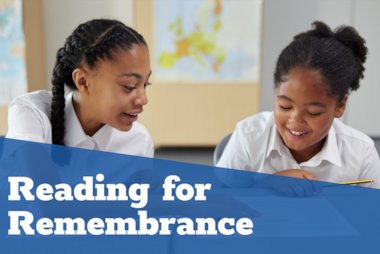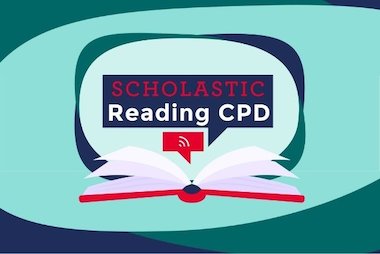21 Top Tips for SATs Success
The SATs are a super-size can of worms. Of all the debates to cut yourself on then the SATs thornbush is the one that can scar you for life.
Children get stressed and need counselling, crabby and cranky teachers start to lose it and senior leaders fret and frown over data.
Many see the SATs as an attack on a school’s wellbeing and mental health. Yes, in the wrong hands, SATs revision can be a nightmare but when intelligently managed they certainly don’t have to be all consuming and take over the curriculum. SATs for breakfast, lunch, after-school and in between is just not needed.
But believe it or not, SATs can be a positive assessment experience and character building.
So what should we do? Take a look at the following tips and take what works for you and yours. These are practical suggestions for working smarter, keeping things in proportion and being battle-ready without the drama.
1. Remind
Right from the start of Year 6, canny teachers set their stall out and tell children how it is. They remind children that tests are a normal part of life but they aren’t everything. They make sure children know that they are made up of many talents and everyone is unique and special. They let children know that their SATs results are just a snapshot and they don’t define their future or job prospects.
2. No fuss
The most effective SATs revision preparations make the SATs low-key and normalise – not turn them into the Hydra of Lerna. They are on the horizon but there isn’t someone permanently stationed in the crow’s nest with their telescope looking for pesky pirates armed with test papers.
When the date does get closer, teachers keep an even keel and don’t make the waters around them choppy by saying ‘SATs’ three times in every sentence and get everyone in a lather. Panic is off the agenda.
3. Don’t try your best
We might be in the habit of saying to children “Just do your best, that’s all anyone can ask of you,” but for Professor John Hattie he thinks that’s the worst thing we can say as a teacher or parent.
He says children thrive on challenge and what we should be saying instead is, “Sometimes your best is not good enough and my job is to help you do better than your best.”
Hattie reckons that we shouldn’t retreat to doing our best but enjoy the challenge of doing better and not ‘reach our potential’ but exceed it. Test preparations can be fraught with comparing what others ‘get’ in their marks but we should be motivating children to beat their personal bests and not worry about what others are doing.
4. Saying ‘YET’
The most powerful word in education is ‘yet’. Children need to know that all because they don’t understand something, that doesn’t mean it’s a lifetime sentence.
Any learning journey will be full of obstacles and barriers and some can seem insurmountable but using the word ‘yet’ gives children the realistic hope that they can progress and they can and will ‘get there’ and pass those muddy moments.
5. Mindfulness
Making time for regular moments of mindfulness can enhance children’s attention and focus, feed a positive outlook, improve memory and improve self-management skills, self-acceptance and self-understanding. It is an effective way to build resilience.
6. Get active
Children need to let off steam, ‘play’ and do their own thing – let’s not forget they are children. But structured exercise is also important to help distract and boost brain power.
Some schools have opted for yoga as a fun way for children to develop body awareness and learn ways to keep them calm, present and happy. Teamwork games are really important too so that children learn to work together, listen carefully, communicate clearly, and think creatively.
7. Go Outdoors
Staying cooped in your stuffy classroom poring over practice papers isn’t good practice. Mix things up a bit and get out. If you have the space, move children around and get them ‘revising’ in some fresh air. A change of scene does everyone good and gives children a chance to learn in new environments that make content more memorable.
8. Take a nap
Napping in the day sound a bit wacky but many years ago napping for all ages was compulsory in schools. When you sense that students are tired and have had enough of ‘doing SATs’ then let them rest for ten minutes.
We are ultra-obsessed with always being on the go but what children really need from time to time is to reboot and recharge and this can work wonders for their mood and performance.
9. Eat and drink well
Children need to eat foods that are going to fuel their bodies and minds. Keep an eye on their food choices and explain the impact sugary foods have on us. Discuss which foods can help sharpen our minds and which foods we need to avoid. Remind children about staying hydrated and sipping water regularly.
10. Forget the highlighters
When getting down to the nitty-gritty of revising, many of us reach for a rainbow of highlighting pens and start to colour in words and paragraphs with gusto. But here’s the news. It doesn’t do much, has ‘low neurological value’ and is relatively inert. Prof John Dunlosky and colleagues from Kent State University in the United States carried out a meta study evaluating ten popular learning techniques and found highlighting to be a passive way of learning. Highlighting might makes us feel like it helps our memory and it might help us think we ‘have done some revision’ but it has very minimal impact. Dunlosky says that rereading is just as ineffective because it can feel productive and create an illusion of knowing.
11. Practice Testing
One of the most effective strategies for substantially boosting learning under a wide array of situations is practice testing and a century of research says so. Practice testing is productively done through retrieval practice and this is where flash cards are hands-down the king at getting information ‘out’. Get children to make these themselves or each other with questions on one side and answers on the reverse.
Other effective ways to retrieve information includes question maps, concept maps, group discussion using concept cartoons, drawing, posters, self-quizzing, creating multiple choice tests and direct verbal questioning. What all these methods have in common is that they are active assessment strategies for learning that involve testing more than once.
Dunlosky recommends that we use a low-stakes quiz at the start of each class, call it a review and zoom in on the most important material.
12. Distributed practice
For revision to stick then it needs to be spread and spaced so it is successively relearned and a study planner works well for this. Revisiting and retracing our steps helps us retrieve so when we learn a concept we should attempt to get at it ten minutes later, a day after, a week after and then teach it to someone else.
The durability of our knowledge comes from forgetting and going back to find what it is we are looking for. If you start revising early-doors in the year and do plenty of revisiting then children benefit because this spaced repetition hacks into their brains through effortful learning.
We need to make things hard for children but in a good way and create what Elisabeth and Robert Bjork calls ‘desirable difficulties’. Distributed practice helps children retain, revise, recall and repeat.
13. Interleaved practice
Sticking to one subject and blasting it for the morning or afternoon might sound like a good way to revise but our brains work better when we do other things in between so short, sharp bursts are best.
When children switch between subjects and engage in other tasks and problems then this clever mix creates more synaptic activity and we retain more. It’s far better to do different things for 10 or 20 minutes at a time than saturate ourselves in something as we can get soggy and bogged down.
Dunlosky’s research has found variation and interleaving has “relatively dramatic effects on students’ learning and retention of mathematical skills” and is far more efficient and enjoyable.
14. Elaborate interrogation
Ensure that children join information to deepen their understanding by posing probing questions that provoke and challenge. Ask plenty of “why,” “how,” “what if,” and “how do you know” questions because it requires children to clarify and link their knowledge of key ideas. They then get into the healthy habit of challenging so that new knowledge is not simply accepted, but considered and the evidence explored. This helps them adopt a Sherlock Holmesian way of thinking when answering questions and to be more investigative.
15. Repeatedly alternating problems with their solutions provided and problems that children must solve.
We often show how to do a few problems and then ask children to do similar problems on their own. But children learn more when they are given incremental guidance on problem solving.
Problems with written-out solutions should alternate frequently with problems that children will solve. Solved problems help children focus on the essential principles that apply to each situation, instead of promoting mechanical solution of problems.
16. Picture this
To help children take in new information then try to find a graphical way of joining concepts together. Pairing graphics with words or ‘dual-coding’ helps children visualise a drawing and prompts and nudges memory for vocabulary and explanations.
Try and link abstract ideas with tangible examples so that concepts connect. Information designer, Oliver Caviglioli’s top tip is to seriously cut the content we might include on slides and resources and chunk information into headings that stand out. He advises we don’t get carried away with fonts and colours and structure information in an orderly fashion to give learners confidence.
17. Music
Some revision sessions might benefit from listening to music because it puts children in a better mood for learning. This won’t be the way to go for every session but it can energise, inspire, motivate and act as a memory stick for remembering concepts through association. Music helps jog memories because it evokes emotions and stimulates visual images.
18. Timely feedback
Timely and substantive feedback on the correct answers is vital as this reinforces learning. There is little point in sitting a few test papers and then going over the answers a week later.
When feedback is in the moment or as close as possible to the testing event then this will strengthen memories of incorrectly remembered information as well as correct information.
19. Don’t hang about
If there is one top tip that children need to get in the habit of doing when answering questions and that’s not making extended pit stops. If they have a one mark question that stumps them then they don’t need to sweat over it but move on and focus on the next questions, particularly those with more meat and marks.
I have advised some children to start their maths papers at the back and tackle the questions worth more marks first. Time management is a skill and children need to practice for speed and double-checking too.
20. Build stamina
For reading you need plenty of stamina and children need plenty of practice in learning to read blocks of text, chunks of paragraphs and pages of information so they get used to what’s coming. Rehearsing the routine of tests is important and that means starting early and getting children used to timings and how to skim and scan.
21. Share mark schemes
The answers to a test are on a need-to-know basis and children need to know. It’s important they get to see what mark schemes accept and don’t accept so share what’s under the bonnet and let children mark each other’s work using them.
And finally….
SATs is not the be-all and end-all but they can still be useful windows into what children know, don’t know and partly know. When they’re integrated into a school timetable and normalised, then there is no reason why children and their teachers have to lose sleep over them.
John Dabell a writer and educator with over 20 years experience in the classroom, as an OfSTED inspector, project manager, writer and editor. He has written many educational books and children’s books.
Similar Posts
-

Alternative ways to keep children reading all year round!
Time to bring some literacy-themed fun into your classroom!
-

Reading for Remembrance
In this guest post, Sophie Lawes, Education Officer at the Royal British Legion reflects on how fiction can be used to support your teaching of remembrance.
-

Join us for a new series of Reading CPD workshops this autumn
Join us for a new programme of virtual CPD workshops to support your English curriculum. Hosted by a team of leading literacy experts, the live workshops will take place on Wednesdays at 3.45pm throughout the 2021-2022…

